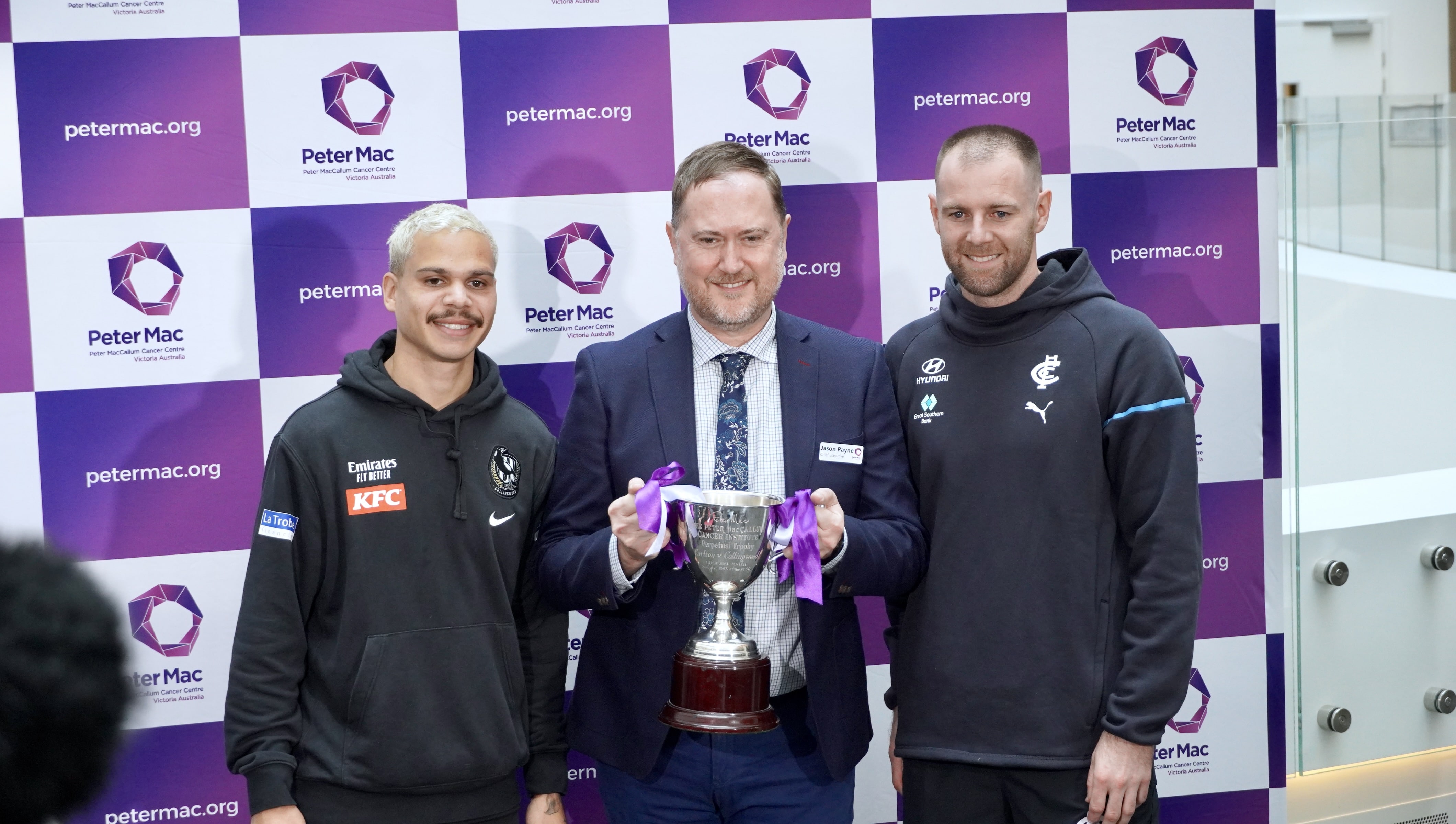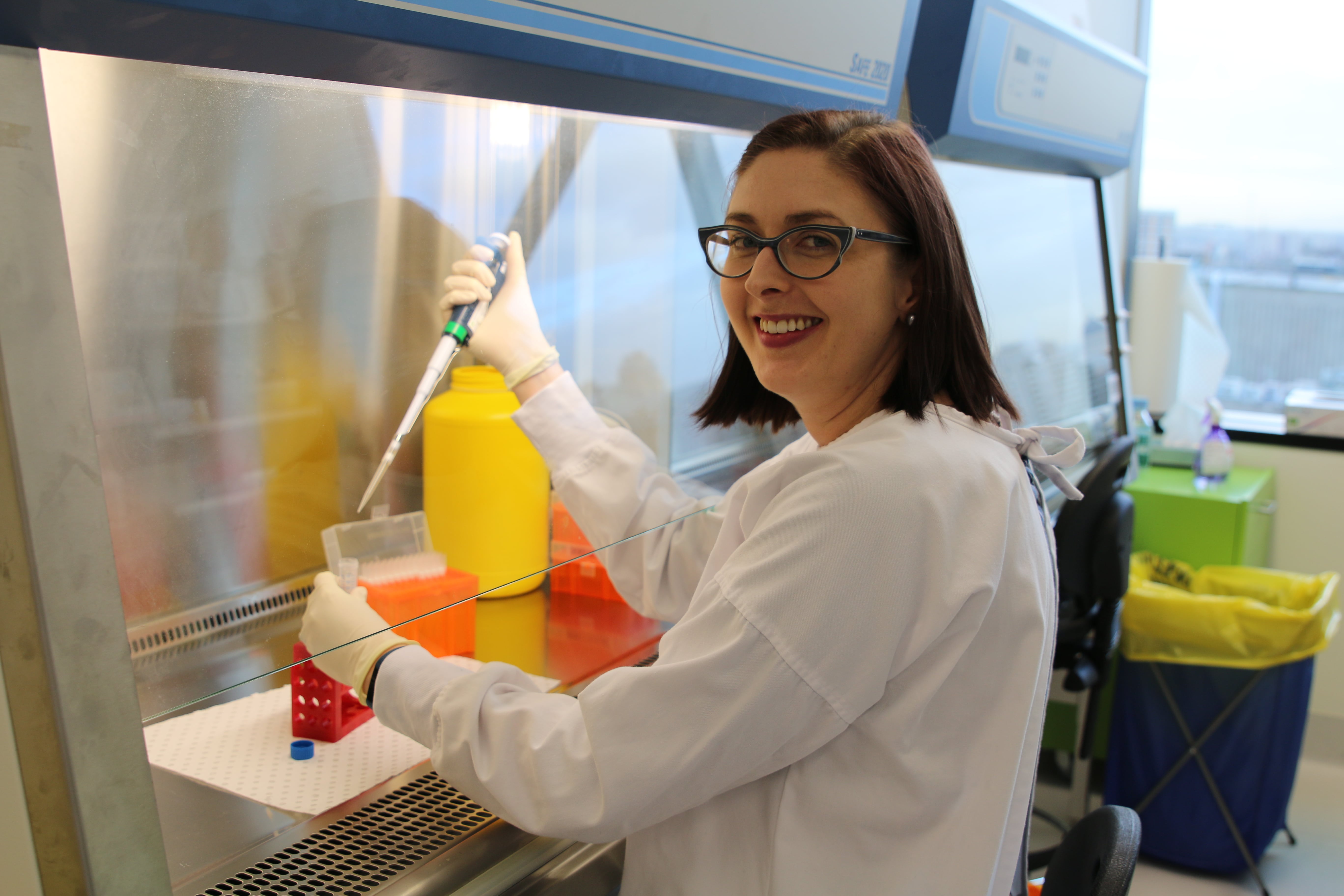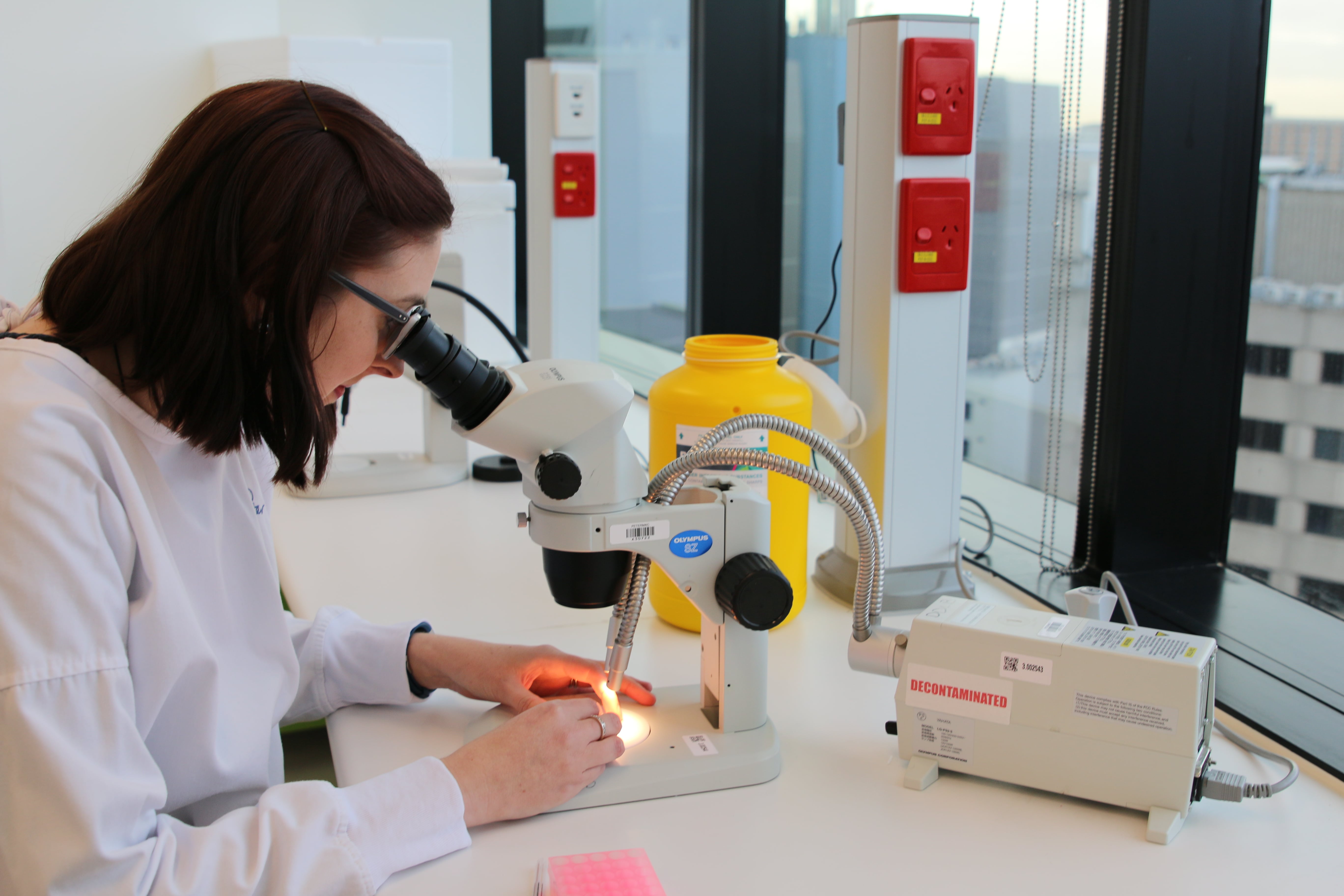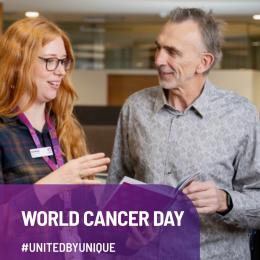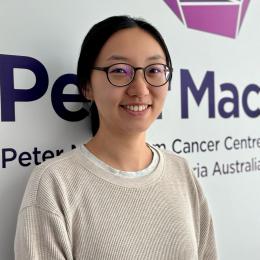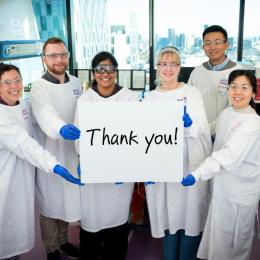Uncovering the how, when and why of chemotherapy resistance with Dr Liz Christie
5 min read 16 November 2022
You may well know that when cancer comes back, it is often more difficult to treat. One of the reasons for this is that it can become resistant to treatment.
One researcher at Peter Mac looking to overcome this problem is Dr Liz Christie. Together with her team, Dr Christie is focused on investigating the different ways that ovarian cancer develops a resistance to chemotherapy. And there’s recently been a major breakthrough.
“We see many cancers come back. And for a lot of those, the treatments stop working. For some of those cancers, they have quite similar ways that they become resistant to chemotherapy.
So the breakthroughs our research team make in ovarian cancer might help to stop resistance in lots of different cancers.”
It’s an exciting new breakthrough and an incredible achievement for Dr Christie who is passionate about saving more lives from this devastating disease. If her work in this field is successful, there is a real chance that it could inform how we treat other types of cancer as well.
We recently sat down with Dr Christie to talk about how and why chemotherapy resistance happens, what her discovery means for the future of cancer treatments, and what it’s like to be working at the forefront of cancer research!
How cancer cells change to resist chemotherapy
Chemotherapy is one of the most common forms of cancer treatment. Developed to kill fast-growing cells, it has been highly effective in curing, controlling, and easing the symptoms of cancer for millions of people over many decades.
But cancer can, and does, develop ways to evade and resist chemotherapy. While chemotherapy may work to treat a person’s cancer initially, it can become less effective with successive treatments, can stop working altogether over time, or prove ineffective if their cancer returns.
Unfortunately, this is a common experience for many patients diagnosed with ovarian cancer.
“Patients with advanced ovarian cancer, from an early stage in their disease journey, are made aware that there is a high chance that their cancer will come back, and at some point, the drugs that may have worked before will stop working.”
According to Dr Christie, one of the major challenges around overcoming chemotherapy resistance is the fact that there are a variety of ways cancer cells can adapt and evolve to become resistant to treatment.
“Some cancer cells manage to mutate so that they can use a protein to actually push chemotherapy out of the cancer cells, stopping them from being killed. This is one common way that cancer cells can adapt to avoid being killed by the chemotherapy.
Another way is that the cancer cells can mutate and improve their ability to repair DNA damage – the chemotherapies work by destroying cancer cells’ DNA so by those cells getting better at repairing it, they actually stop the chemotherapy from working.”
By delving into the why, when, and how of chemotherapy resistance, Dr Christie and her team are hopeful that they’ll be able to discover ways to stop resistance from developing in the first place, not just in ovarian cancer, but potentially in other types of cancer too.
A way to predict resistance before it happens
Another major challenge in overcoming chemotherapy resistance is that there is currently no way to accurately predict when a patient’s cancer will become resistant.
For some patients, resistance can occur just weeks after starting treatment, and for others it can take months, even years, before it happens. And, for many cancer patients, they likely won’t know that their treatment has been ineffective until after they’ve already gone through it.
“Trying to predict or understand which patients are likely to develop a resistance to treatment is quite a complicated thing for us to do. We know that some resistance is more likely to appear in certain groups of patients, but it’s hard to know when it will happen.”
That’s why, for the past five years, Dr Christie and her team have been collecting and studying samples from thousands of patients to determine why only some cancers become treatment resistant and why others don’t. Recently, this research has delivered a ground-breaking discovery.
Through her research, Dr Christie has discovered that cancer cells will release minute fragments of DNA, known as circulating tumour DNA, into the bloodstream. This discovery means that researchers and doctors will now be able to identify the different mutations or DNA changes that are happening within the cancer cells by simply taking samples of, and analysing, the patient’s blood.
“Rather than patients undergoing surgeries or biopsy procedures to find out which way they've become resistant to their treatment, we can use a non-invasive blood test and some DNA sequencing analysis to look for those trace amounts of circulating tumour DNA.”
This is a huge breakthrough. By monitoring the presence of this DNA in the blood, researchers will now be able to see if the cancer has mutated, or is starting to mutate, to become resistant to treatment.
Once researchers can see these mutations occurring, they can quickly move patients on to a treatment that may work better for them, or discover a way to slow down or stop chemotherapy resistance from happening altogether.
“When we find out a person’s cancer is becoming resistant, we hope to do further investigation to see if quickly directing them onto a new therapy that may be more effective can improve not only their survival outcomes but their quality of life.”
The future of Dr Christie’s research
Dr Christie’s work is still in its early stages and, for now, she’s mainly focused on furthering her research into understanding how factors like genetics can affect chemotherapy resistance for patients with ovarian cancer.
She hopes that by being able to detect and predict the likelihood of chemotherapy resistance, we’ll be able to deliver even more targeted and personalised treatment plans for each and every patient.
“At the moment we're trying to understand how women who have inherited mutations in the BRCA1 and BRCA2 genes, how this can influence their cancers to become resistant to chemotherapy.
And we're hoping to do some research where we can track patients and monitor their circulating tumour DNA over a long period of time and work out exactly when these resistance mechanisms are arising before they fully become resistant to treatment.”
In the long term though, Dr Christie is excited about the possibilities and potential applications of monitoring a patient’s circulating tumour DNA.
One very promising research avenue is looking at how we can use Dr Christie’s research as a foundation to develop blood tests to detect cancers even earlier.
“Circulating tumour DNA is certainly being looked at as an early detection test across lots of different cancer types. One of the challenges is that we're still really early in our understanding of how that DNA is released from the cancer cells and how much of it we can actually identify.”
There’s still a lot of work left to be done, but Dr Christie is optimistic about the future of cancer research and how her work can be more broadly applied to other types of cancer.
"If we can understand more about how cancers evolve, the information could be applied across lots of different cancers, even if the ways they resist are slightly different.”
Thank you for your support
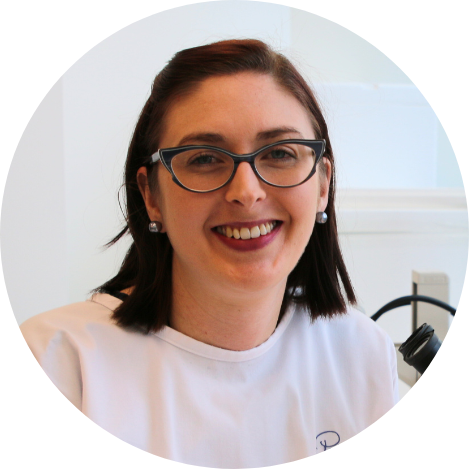
Dr Christie is just one of the many researchers at Peter Mac whose work is made possible through support like yours, something she is extremely grateful for.
Please read Dr Christie’s message to Peter Mac supporters below:
"At Peter Mac we’re always focused on how we can improve outcomes for patients, so your help is incredibly important and donations to research at Peter Mac are essential if we are to continue making breakthroughs. Thank you!
When you give to Peter Mac you help us to do really cutting-edge research and make sure that we have access to the latest and greatest of all the different research technologies that are coming through."
Your kind support gives us all hope that more life-saving cancer research discoveries will build a cancer-free future for more people.
@Follow us on Instagram (@SupportPeterMac)

